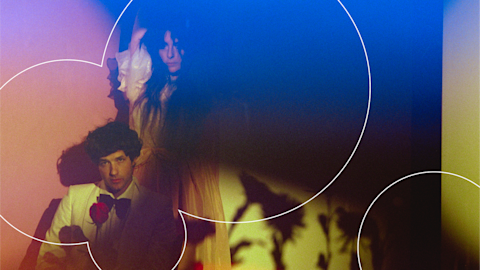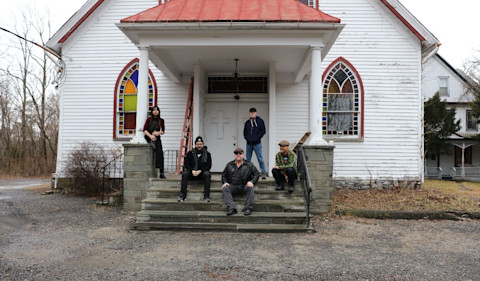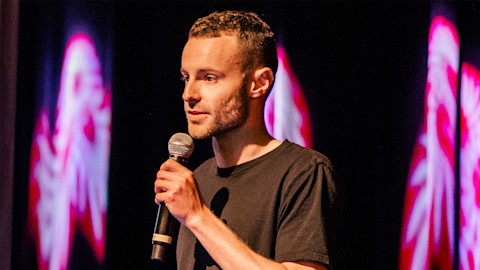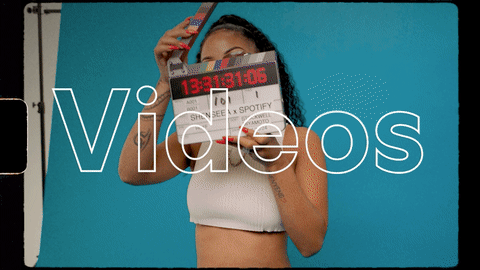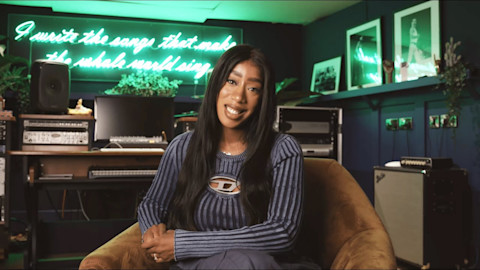Earlier this year, Adam Bainbridge, better known as the singer-songwriter and producer Kindness, was in Stockholm celebrating a friend’s birthday. At the end of the night, the group decided to take a PA system, a DJ controller, and a generator into the woods and ring in the following morning with a lakeside DJ set. “It was nuts, but also the songs that made the most sense in that setting were not bangers, and they weren’t even necessarily particularly recent songs—it was a mood thing, a discovery thing,” Kindness explains, describing the dreamy setting and touching on a fundamental approach they take when DJing. It’s a skill Kindness has honed over the years and one that preceded their career as a musician.
These days, plenty of musicians have integrated DJing into their careers. For some, it’s a source of inspiration; for others, it’s an alternative way to form a connection with a roomful of people; and for most, it’s yet another fun way to celebrate their love for music.
If you listen to any record by British pop group Hot Chip (their new album, A Bath Full of Ecstasy, is a great place to start), it becomes immediately clear why all of the band members are also fantastic DJs. “You can hear that we’re obviously influenced by a wide range of different kinds of music, and that’s reflected in the way we play [sets] as well,” explains Felix Martin. Like Kindness, Felix started DJing well before the band formed. At 18, his father drove him down to South London to buy a set of record decks he saw listed in the local newspaper, and Martin quickly got into collecting electronic, soul, funk, and R&B records.
Today, the band members' eclectic music tastes and selector skills are not only a source of inspiration for their music, but also a way to bond as a group. “Sometimes a DJ set with all of us involved will be a bit like when we’re backstage before a gig and playing music,” Martin says. “It’s quite a natural extension of our love of music and sharing music with each other—DJing feels like quite an organic part of that.”
![Kindness Photo by Michele Yong]()
Kindness Photo by Michele Yong
A learning experience
For Kindness, DJing has also played an important role in training their ear as a musician. “It was kind of like a high school rite of passage to go and DJ at a club with other teenage DJs,” they share, reflecting on their introduction to the practice. “Also, you could only buy like three records a month—records were expensive, and we were all broke.” This early experience helped Kindness hone their musical taste, and over the years would come to inform their skill as a producer. “It’s something I can do quite well; I’m not the strongest singer or musician, but I can definitely blend two things that are hard to blend otherwise,” they explain.
As Kindness grew more knowledgeable of DJ software, particularly Ableton Live, their grasp on the technology of mixing allowed them to reappropriate techniques to make music. “I understand its flaws and weaknesses—I felt like some of us were actually turning it inside out a little bit,” they explain. “Ableton really wants you to stay in a loop with everything; that’s kind of how the software is designed. So if you end up making songs that have lots of changes and lots of different sections, that’s almost going anti to the purpose of the software, and that was really satisfying,” they add.
![Kari Faux Photo by Asato Iida]()
Kari Faux Photo by Asato Iida
For LA-based rapper, singer-songwriter, and producer Kari Faux, the path to DJing began after she’d already released music. It’s something she says she always wanted to do, but picked up a couple years ago as a way to distract herself when she was feeling down. “I had a controller [and] just started practicing and looking at YouTube videos on how to mix,” she says.
For a year, Kari regarded DJing as a hobby; it was something she’d only do at home. When she decided to record her first mix—a survey of early 2000s hip-hop and R&B—and post it online, fans responded positively. “I think at some point in music, I just kind of got uninspired, and then I started DJing and it restored my confidence as far as my musical taste,” she explains. When Kari started DJing parties, that confidence grew: “When I put out my last project, I was completely confident in the music that I had made, solely because of DJing and just having people be like, ‘Yo your mixes are really tight, I love the songs that you chose and the songs you play.’”
In addition to influencing the music they make, executing a DJ set can be quite a different experience for artists than performing their music on stage. For Kindness, they find that DJing allows them a certain freedom they don’t necessarily have when performing. “Once in a while being in the exact same headspace as the audience, you can end up having this really hyperconnective experience that doesn't really happen between a stage performer and the audience,” they explain.
For Martin, DJing is more of a direct, straightforward experience. “There’s something nice about the simplicity of it, because our live music involves quite a lot of people and a lot of different equipment, and it’s often at a big [venue] with thousands of people,” he says. “DJing is intimate, and you can feel that connection with the crowd if it’s a good gig.” For Kari, DJing and performing are one and the same. She considers herself a vessel. “When I’m performing, I’m really channeling some higher being, and that’s how I feel when I DJ,” she says. “I choose to keep doing it because it makes me happy, and I know that when I do things and I’m happy, I’m setting the tone for the rest of the room. That’s the most beautiful thing about DJing—that you get to control the tone of the room. It’s a very powerful thing, and you got to use that power for good.”
—Khalila Douze
